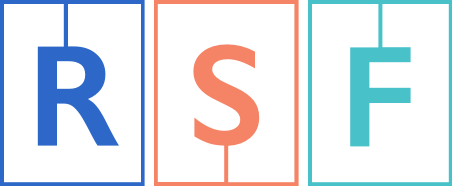Profile: Growing into the Role

Reference map for researchers somewhere around between 3-5 years experience.
Are you in a similar place? How does your map compare? Check out the map explainer if you need help to read this map.
Are you in a similar place? How does your map compare? Check out the map explainer if you need help to read this map.
Here is an example researcher whose ability to work the process from setup to synthesis moves them beyond any notion of “junior.” They’re well-versed in interviewing, capable of conducting quality sessions in a range of circumstances. Now, they’re practicing the work that turns data into useful meaning, and learning to take the work through to impact by engaging with stakeholders more broadly. Researchers with anywhere from 3-5 years experience may have a map with these trends.
Biggest challenge? “Persuasion, stakeholder management, communication.”
—Senior UX Researcher, in-house, 3 years in the field
—Senior UX Researcher, in-house, 3 years in the field
Engaging the larger team
Somewhere from 1–3 years in, researchers shift from desiring to communicate around projects, to actually doing it. It’s a follow-up to the theme of “Build strong foundations,” identified in our “Learning” profile. There, we saw this trend in big proportional drop of researchers who desire to do project planning at the 2-year mark. Here we see the shift expressed in the engage with stakeholders skill, from more-heavily-desired skill to a more-heavily-useful.

Communicating about projects is a foundational skill. It’s not glamorous and easily overlooked. Running projects means a researcher is the face of the work, responsible for making sure others know what they need to know—so that they can do their own work accordingly, and for the project to get the help or attention it deserves.
It’s somewhere along the path of this critical shift that core craft skills are increasingly enabled or limited by our human skills. Planning projects and communicating throughout is the first testing ground for this type of work: effectively interacting with team members who are not researchers..
It’s somewhere along the path of this critical shift that core craft skills are increasingly enabled or limited by our human skills. Planning projects and communicating throughout is the first testing ground for this type of work: effectively interacting with team members who are not researchers..
Pressure in the middle
This is the time when researchers are able to take on a wider range of work, are gaining experience in a range of projects. They’re still learning, so they don’t always get it right..
Biggest challenge? “Time—everyone wants me to work on their project but there is only one me!”
—Senior UX Researcher, public sector, 2.5 years in the field
—Senior UX Researcher, public sector, 2.5 years in the field
Biggest challenge? "Demand - a lot of opportunities for research, but too few researchers in the teams."
—Design Researcher, agency, 2 years in the field
—Design Researcher, agency, 2 years in the field
This same time brings a new pressure. When researchers can handle small projects and have already demonstrated the benefits, more and more team members are interested in working with researchers. This is an especially acute issue for a research-team-of-one.
Biggest challenge? “Saying no to projects and prioritizing. Getting team members to slow down and fully appreciate the value of research in projects.”
—Senior UX Researcher, public sector, 5 years in the field
—Senior UX Researcher, public sector, 5 years in the field
The reward for good work is more work. Handling one’s time, negotiating timelines with the team, and figuring out how to carve in learning only gets more difficult as researchers increase in experience. Recognize this challenge early and actively attend to the amount of work you’re doing, how well you’re doing it, and what is realistic.
Emergence of "strategy"
About 40% of researchers, at all levels of experience, believe that developing product or design strategy is their most important skill or state that it’s one of the most desirable skills they’re not yet using. We see a marked spike in both interest and use somewhere near two years of experience.

Strategy is a huge and muddled topic. And it exists at each level of our Actor model. For these purposes, consider strategy, for any scope of interest (our projects, our function, our products, our organization), to be the process of deciding what we ought to be done, and how we ought to go about doing it. This process sets the foundations for tactics (what we actually do) that bring a strategy to life.
Biggest challenge? "Stakeholder management and influencing strategy.”
—Experience Design Researcher, in-house, 3 years in the field
—Experience Design Researcher, in-house, 3 years in the field
Of course this is a desirable thing to do: influencing strategy is control over the fate of what we work on, and how that work is used. In terms of influencing what we work on, the first opportunities to practice this skill arise when researchers can credibly suggest the shape of work and its projected outcomes to advocate for the most useful course of action on a project level. In terms of influencing how our work is used, developing design direction or product approaches are a combination of synthesis and stakeholder engagement, fed by the quality of research supporting them.
* * *
The next level: "Thriving" - Thriving in the Role

.png)